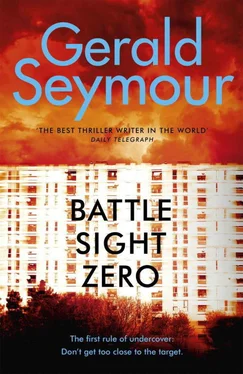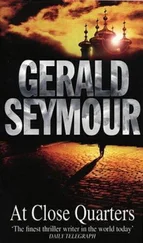The bell did not work. Hamid, kingpin of that stairwell, a little emperor in the world of trading good-quality hashish from Morocco knocked on the door of the fifth-floor apartment. Not a heavy knock, not one that threatened to remove the door from its hinges. He waited. Behind him, at a distance back along the communal walkway from the stairs were the sightseers, like the tourists who gathered at the quayside of the vieux port , who were the strong-arm muscle that he needed as watchers and dealers and couriers, but not required now. His younger brother, Karym, was with them. The mob would not be required, and he carried no weapon.
He was patient. He heard the rustling of feet across the floor beyond the thin wood of the door. A TV played inside. There was a spy hole and he assumed it would be used. A voice called out inside, the mother’s. He would have been inspected, his identity confirmed. There would have been time enough for her to lift her phone, call 112 and demand immediate response from the Police Nationale , possible. But not a single patrol car would be tasked to go and evaluate a problem. Entry into La Castellane would take planning, commitment, probably the deployment of a hundred officers. She, the mother, would have known that. The stink from the walkway of urine and decayed food and rubbish filtered in his nostrils. He would not be kept waiting long. The mother was a nourrice , unemployable at her age, and reliant on the small income he paid her for keeping weapons or cash, or pouches of hashish, safe and hidden. She called out again, quite a firm voice. A bolt was drawn, a chain was loosed, a key was turned. He had not expected he would have to force his way inside. She opened the door. He smiled at her, without warmth, but as if it were correct to acknowledge a woman who he employed, and who had not given him – as far as he knew – cause for complaint. Her face was frosted, and her eyes were wide and she did not blink, did not look away from him. She called again.
The boy appeared, came from a room off the hallway.
There was no gesture to the boy. Nothing said. The mother held her son for a moment, then released him. The boy shook. Some mothers might have clung tight to her son, held him with a desperate strength, cried out so that the whole block knew her agony. Not this mother. She might have thought he was condemned, might have thought that her boy would be beaten, roughed up, then returned. The boy could barely walk. He did not try to run back inside the apartment, take refuge in his bedroom. He came out and stepped, swaying at weak knees, on to the walkway. Then the boy wet himself… the door closed behind him. They heard the key being turned and the chain replaced, and the bolt pushed across. Hamid took the boy’s ear, easy to reach under his close-cut hair, this was a teenager who had regarded himself as a rising star, who had spent money on his appearance, but now had messed himself. A trail was left behind him and along the walkway. He might have been too terrified to fight, and his step was leaden, and the hold on his ear was merciless. They walked towards the youths.
Hamid knew the boundaries of his power. On this walkway and its stairs, and at the well at the bottom, his authority was total. With the small bearded man, knowing his reputation, he would not have considered taking a liberty: no action, no word, that might offer offence. The group parted. A day before, it was safe to assume, the boy would have been cocky, brimming cheek and mischief, and now his trousers were stained and he left the mark, warm, dribbling, behind him, and his mother would now be slumped at her table, head in hands, alone, convulsed in tears. It would teach the boys who followed them down the stairs, hushed and not daring to be heard, a further lesson in the need for discipline, and they would appreciate the show when it was done. A barbecue was always well attended, was popular among the teenagers who followed a leader, and a leader’s money.
They went outside, past the overflowing rubbish bins that the corporation had not collected that week, or the previous one, or the one before, citing ‘problems of access’. Likely they were holding out for bonus payments if they came inside La Castellane or any of the other nearby projects. The sun was dropping and darkness would soon envelop the close buildings. His hand now rested loosely on the boy’s shoulder. The bladder would have been emptied and the boy was firmly pushed forward if he slowed. With darkness came the customers. With the customers came the banknotes, new and old, frayed or virgin. The project’s life relied on the sale of hashish, and scores depended on the patronage of men such as the brother of Karym. All of the chouffes and the rabbatteurs and the charbonneurs and the nourrices were paid, had families they supported. The government did not come with hand-out cash, nor the corporation in the arrondissement , nor the bureaucracy in the Town Hall on the Quai du Port. All were paid well in excess of the listed poverty line. The project depended on hashish and the quality of the entrepreneurs selling it… All of the boys who followed saw themselves as coming figures, had ambition – but kept their distance and none had made eye contact. None would speak up, none would defend. He went to another block. The boy was handed over to new gaolers. An astute move: it meant that the credit for the coming barbecue was spread, meant also that the matter could be put to rest for a few hours, leave him free to start trading when the night descended on the poorly lit buildings.
The boy had gone, a door had closed on him. He whistled, and his young brother – the cripple who was Karym – ran forward. He said what was wanted.
Karym carried the rifle.
Not obviously, not as the boy had done, not as an idiot would.
It was wrapped in a blanket and tucked under his strong arm. He had been sent by his brother back to Hamid’s personal apartment – a palace of modern furniture and drapes and a kitchen like those on TV – and had collected the weapon from under the bed. There had been, he noted, two small hand grenades in a half-open drawer and a pistol was protruding from under the pillow, and was loaded, and on a dressing-table was a can of pepper-spray. In the apartment, Karym shared with his sister there were no weapons. When he had retrieved the rifle from under the bed, he had sat on the mattress and had laid out the pieces of the weapon on the floor at his feet, had done it by touch and had learned its history of origin, then had put it together again, barely looking as the parts went back into place. Karym regretted that he had no friend with whom to share his obsession. Not his sister. Not his mother when she came from Cassis, the town where she lived and worked, and she would scream and rail that her family were vermin because of Hamid’s notoriety. If the obsession had involved the fans of the Marseille football team then he could have shared. Not that the kids would go to the Stade Vélodrome to watch Olympique because that was on the far side of the city, away down the Prado road and distant from familiar territory, but there were boys who knew everything about the team, the players, the tactics… all tedious to young Karym. The weapon, the AK-47, the design of Mikhail Kalashnikov, was principal in his life. Nothing mattered as much as taking any opportunity to soak up information on the rifle, and to handle one… This one was crap. It would have come off the production line of the Zastava factory at Kragujevac in the Serbian state. They called it the Zastava M70, a poorly produced copy of the Kalashnikov. They came to Marseille from the Balkans by road or via a great loop which took them to Spain and then another overland route. Frequently they were intercepted and the hauls were large and the prisons bulged with the couriers… but it was, to young Karym, still a Kalashnikov. He walked through the project. It was said – Karym had read it in a magazine – that there were still six million assault rifles privately owned in the Balkan countries, illegal and hidden, and any family that was suffering hardship would take the rifle to a dealer, haggle over it, get a poor price, sell it. It gave Karym pride to know that the projects of northern Marseille were the principal destination for the trade – other than the terror groups circling Belgium and the French capital, but terror was outside all aspects of Karym’s interest and experience… and, Zastava made the ammunition. It was a clean weapon, might never have been out of its shipping wrapping, previously stored in a warehouse, then put up for sale like it was a used car, ‘one careful owner’, then bought by his brother. Maybe his brother had paid $150, or could have been less because the market belonged to the buyers.
Читать дальше












